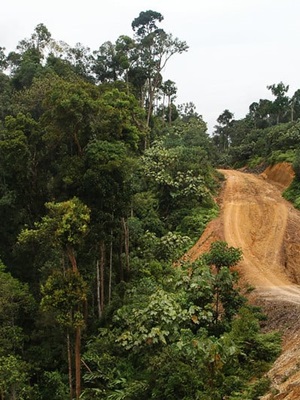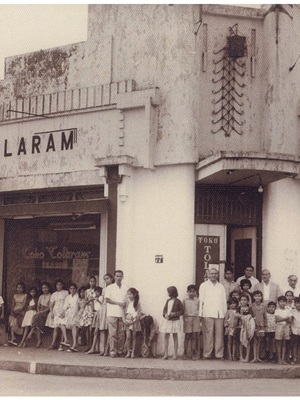Breathing for the Empire
I. Introduction: The Empire's New Breath
The world is choking, and the West has learned to monetize guilt. In a dazzling moral pirouette, the same nations that once partitioned Africa's body now lease its lungs. The rhetoric of climate salvation has replaced the language of civilizing mission, but the logic remains colonial. Under the banner of carbon credits and conservation, vast tracts of African land are again enclosed, not for cotton or coffee this time, but for carbon, reframing the continent as the West's carbon lung.
II. The Carbon Sink Trap: A Green Enclosure
The carbon market is the plantation reborn. Then, land was seized for crops to feed Europe's factories. Now, it is fenced off as carbon sinks to cleanse Europe's conscience. Communities are displaced, grazing grounds vanish, and livelihoods evaporate in the name of "sustainability." This new regime extracts value from poverty. African land becomes profitable only when it is idle, criminalizing development itself: an African factory emits carbon and is labeled a threat; a Western one emits the same and simply buys redemption.
The carbon credit industry commodifies stillness and calls it virtue. It is a perfect system for the West: outsource emissions to the atmosphere and outsource guilt to Africa. The result is what Jason Hickel calls green structural adjustment: a policy architecture that dictates African land must stay unproductive for the planet to "heal."
III. The Net-Zero Mirage
A Western airline can boast of "carbon neutrality" because a Kenyan farmer can no longer till his land. The air is no cleaner. The West has simply outsourced its repentance. Carbon credits don't reduce emissions—they redistribute moral debt. They create a system where the South's ecological labor underwrites the North's excess, turning Africa's natural, historical service of carbon sequestration into a tradable commodity that adds no new planetary gain. The carbon balance remains constant; only the profit flow shifts northward.
IV. The Moral Arithmetic of Hypocrisy and the Psychology of the Ladder
The premise is as old as empire: the West industrialized through centuries of unregulated extraction, then declared that the planet cannot withstand Africa doing the same. This is the psychology of the ladder: having climbed to prosperity on the rungs of fossil fuels, the West now pulls the ladder up behind itself and labels the act 'environmental responsibility.'
It's a convenient ecology of inequality: one hemisphere manufactures luxury, the other manufactures absolution. In this moral arithmetic, virtue is inversely proportional to opportunity. The poorer you are, the cleaner your conscience must be. The richer you are, the more you can afford to pollute. This system operates as a modern theology, a Gospel of Guilt-Free Pollution. Western corporations brandish "net zero" certificates like medieval indulgences, where the sin is paid for by others. The confession is a press release, and the redemption is a line item on a carbon balance sheet, absolving the polluter while the scapegoat, Africa, is driven into the wilderness.
V. The Double-Billing of Injustice
When land is seized for carbon credits, people lose not just their livelihoods but their histories. This is not theoretical. In Kenya's Rift Valley, when pastoralists are dispossessed for carbon concessions, survival itself is criminalized, often manifesting in cattle rustling and banditry, not as innate violence, but as the predictable outcome of a system that destroys self-sufficiency.
The West pays for carbon credits and writes them off as environmental responsibility. African states then foot the bill for the social fallout, security operations, food aid, relocation programs. The displaced citizen pays with his livelihood, sometimes with his life. This is the double-billing of injustice: Africa pays twice, in lost potential and in the cost of cleaning up the chaos, while the West collects moral interest.
VI. Manufactured Disorder, Weaponized Narrative
The cycle is complete: dispossess, destabilize, then pathologize. The system first creates desperation, then punishes the desperate, then uses their suffering as evidence for continued intervention. When desperation breeds unrest, the West points and says, "See? Africa cannot govern itself."
But this instability is not proof of African incapacity; it is the predictable outcome of a system that first destroys self-sufficiency and then punishes its consequences. Carbon colonialism manufactures the very dysfunction it claims to fix. It is development in reverse, a policy that turns citizens into liabilities, producers into dependents, and the displaced pastoralist into the scapegoat for the disorder created by global policy.
VII. Beyond Carbon Chains: Regenerative Industrialization
The alternative is not to reject climate action but to redefine it. The problem is not carbon reduction; it is where and how that reduction occurs. Real solutions must begin at the source, the factory, the refinery, the cargo ship, not in the forests that have done their duty since creation. The focus must shift from offsetting guilt to transforming production.
Africa does not need pity projects; it needs power, literal and political. Renewable microgrids can light industries without burning coal. Circular economies can turn waste into wealth. Regenerative agriculture can feed people and sequester carbon simultaneously. Initiatives like COCO-Justice Hubs and PlastiChain are already pioneering this path, treating waste and land not as liabilities but as raw materials for community-owned, regenerative transformation. These are not utopian ideas; they are pragmatic blueprints for climate justice.
Africa must not be the world's carbon sink. It must be the world's green workshop, the place where sustainability and sovereignty meet. A just climate order would help Africa leapfrog the dirty stages of development, not skip development altogether.
VIII. Ethics and the Face of the Other
Emmanuel Levinas reminds us that morality begins with the face of the other, the moment you recognize the infinite responsibility that another's vulnerability places upon you. The global North has long refused that gaze. It prefers abstractions, targets, credits, offsets, because numbers don't plead. They don't look back.
True climate justice begins when we restore the face to the statistics: the herder in Turkana displaced for a forest he can no longer graze; the farmer in Congo watching outsiders claim his trees; the child whose future is mortgaged to someone else's emissions. The hard truth remains: your clean conscience is an African's crisis. Until policy can see these faces, it will continue to serve markets, not humanity.
IX. The Reckoning: From Extraction to Partnership
To breathe for the empire is to suffocate for its sins. Africa's challenge, and opportunity, is to reclaim the right to breathe for itself. This means designing systems where environmental stewardship and industrial ambition reinforce rather than exclude each other.
A new partnership is possible: one that treats Africa not as a vessel for penance but as a laboratory for the planet's future. The continent's youth, innovation, and ecological wealth are not problems to be managed; they are the engines of a regenerative civilization. The question is not whether Africa can afford to industrialize sustainably, it is whether the world can afford Africa not to.
X. Conclusion: The Breath of Justice
Carbon colonialism is empire by other means, a quiet occupation of the atmosphere and the soil. But Africa's resistance does not need to be loud to be revolutionary. It begins in the refusal to sell its breath, in the insistence that green justice must also be human justice.
The forests will continue to breathe. The rivers will continue to flow. The real question is whether the world will finally let Africa breathe for itself, to build and innovate, and to claim its rightful place not as the conscience of the world, but as a free and equal partner in healing the Earth. The true measure of justice is not how clean the West feels, but how free Africa becomes.
References
Hickel, J. (2020). Less is More: How Degrowth Will Save the World. London: Penguin.
Levinas, E. (1969). Totality and Infinity: An Essay on Exteriority. Pittsburgh: Duquesne University Press.
United Nations Environment Programme (UNEP). (2022). State of Finance for Nature 2022: Time to Act - Doubling Investment by 2025 and Tripling by 2030. Nairobi: UNEP.
Posted 26/10/2025

















